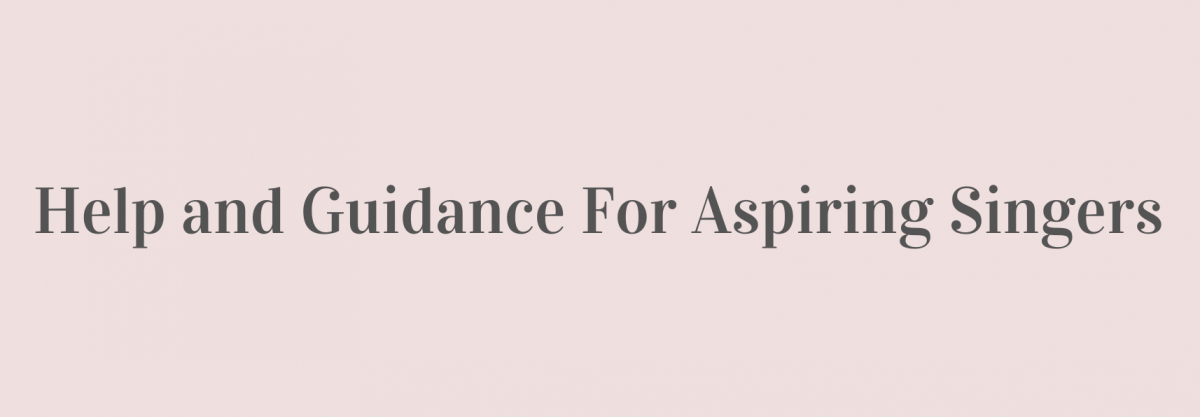Continuing on from the ‘Studies of a Soprano‘ ‘Vocal Health’ Series launch, in this blog post, I shall share my own tips on how to look after your voice as a student at conservatoire. I do hope you enjoy this blog – if you have any questions, please do not hesitate to get in touch!

My Top Tips!
1. Prioritise Sleep.
As singers, our body is our instrument, therefore when our body becomes tired, so does our voice. We sing best when our bodies are happy and healthy. In order for us to reach optimal health and functionality, we need to ensure we obtain an adequate amount of sleep each day. According to the NHS website, most adults need between six and nine hours of sleep every night. I understand sleep levels vary from person to person and, as singers, we often have very busy and changeable schedules, making it difficult to stick to a routine. I would recommend downloading a sleep app such as ‘Sleep Cycle’ to track the amount of sleep you are getting and keeping a log of things you have done before having a good or bad night’s sleep. This can help you to identify habits, such as using a phone before bed or increased stress levels.
2. Stay Hydrated.
Drinking lots of water is crucial for maintaining a healthy voice. The Eatwell Guide suggests we should consume six to eight glasses of fluid a day. I would suggest always having a bottle of water with you (to take to classes and rehearsals) and even setting reminders on your phone to keep hydrated! It is also worth noting that certain foods and drinks can cause dehydration. For example, caffeinated drinks such as coffee and tea can cause a lack of hydration as they are diuretics. Being an avid tea lover, I personally try to drink a glass of water as I wait for the kettle to boil when making a cup of tea… every little helps!
3. Exercise
Singing is an incredibly physical activity – so it is no wonder we are often referred to as vocal athletes! To ensure you are feeling healthy, strong and ready to sing, I would highly recommend engaging in physical exercise. This doesn’t have to be anything extreme, it can simply be going for a walk in the fresh air each day. Not only will this improve your physical health, but even your mental health. An improvement in both of these areas will undoubtedly have positive impact on your voice.
4. Know when to say ‘no’.
It can be easy – especially as a young singer – to feel pressured into performing when you’re not quite feeling up to it. If you feel any sort of pain or discomfort vocally – however slight – the simple solution is to not sing! It is without a doubt better to decline one performance than to perform and risk damaging your precious vocal folds! Do not be afraid to do what is best for you.
5. Vocal Technique.
A very important factor in maintaining top vocal health is ensuring you are performing with the correct vocal technique. Singing with a secure and reliable technique (including support, breath control and posture) will help to keep your voice healthy and singing for longer. If you are unsure about vocal technique or have any questions, I would recommend speaking to your voice teacher, or send me a private message if you would like any advice. A favourite technique I love to use during practice is the straw technique (a semi-occluded vocal tract exercise ‘SOVT’), as this ensures that you are engaging in continual air flow when singing whilst placing less pressure on the vocal folds. For more information on ‘SOVT’ exercises, do check out the link at end of the blog.
6. Avoid Vocal Overuse.
As professional voice users, we put our voices through many hours of work; from rehearsals to singing lessons and concerts. In the time that you are not using your voice in professional situation, be kind to it and try not to overuse it. I would suggest avoiding shouting in loud, busy places and also bearing in mind that whispering too can put strain on your vocal folds. If your voice is feeling tired, do try to steer away from throat lozenges if possible, as these numb the vocal folds and can lead to vocal overuse as a result.
7. Rest Up!
One thing I have certainly had to learn throughout my time as an Undergraduate student is that it is still productive to rest. It is important to listen to your body and give it what it needs. Trying to push yourself too hard when you are feeling physically tired, just because you feel you should, will be more detrimental to your work output. Taking time to relax and minimising stress benefits your voice and your singing.
8. Repertoire Choice.
It can be very tempting as a young vocal student to want to sing repertoire that is big and exciting, however you must always check your repertoire with your teacher before you dive into it! It is important to make sure you are singing the correct repertoire for your voice type and your current stage in development, as singing unsuitable repertoire can put a strain on the voice. I have often been told that if an aria is suitable for you, you should be able to sing it multiple times without tiring.
9. Know When to Ask For Help.
If you have a vocal problem for a prolonged amount of time or if something doesn’t feel quite right – please do not be afraid to ask for help and advice. If you have any concerns, I would suggest consulting your GP and asking to be referred to a specialist who can then check everything over for you.
RESOURCES:
BAPAM: https://www.bapam.org.uk/
HELP MUSICIANS UK: https://www.helpmusicians.org.uk/health-welfare/vocal-health
BRITISH VOICE ASSOCIATION: https://www.britishvoiceassociation.org.uk/
STRAW PHONATION: https://www.voicescienceworks.org/straw-phonation.html
Thank You For Reading!
A podcast version of this blog will be made available soon.
Instagram: https://www.instagram.com/studiesofasoprano_/


